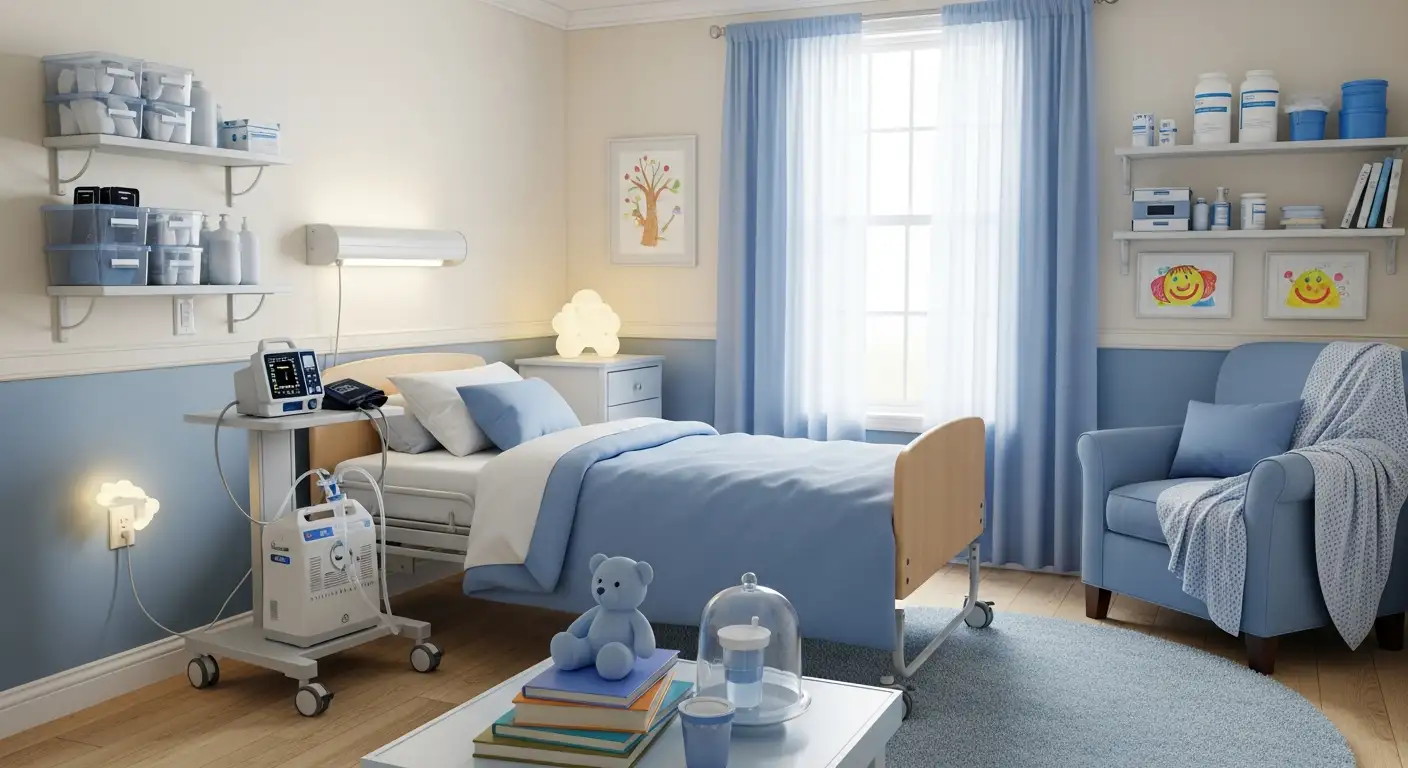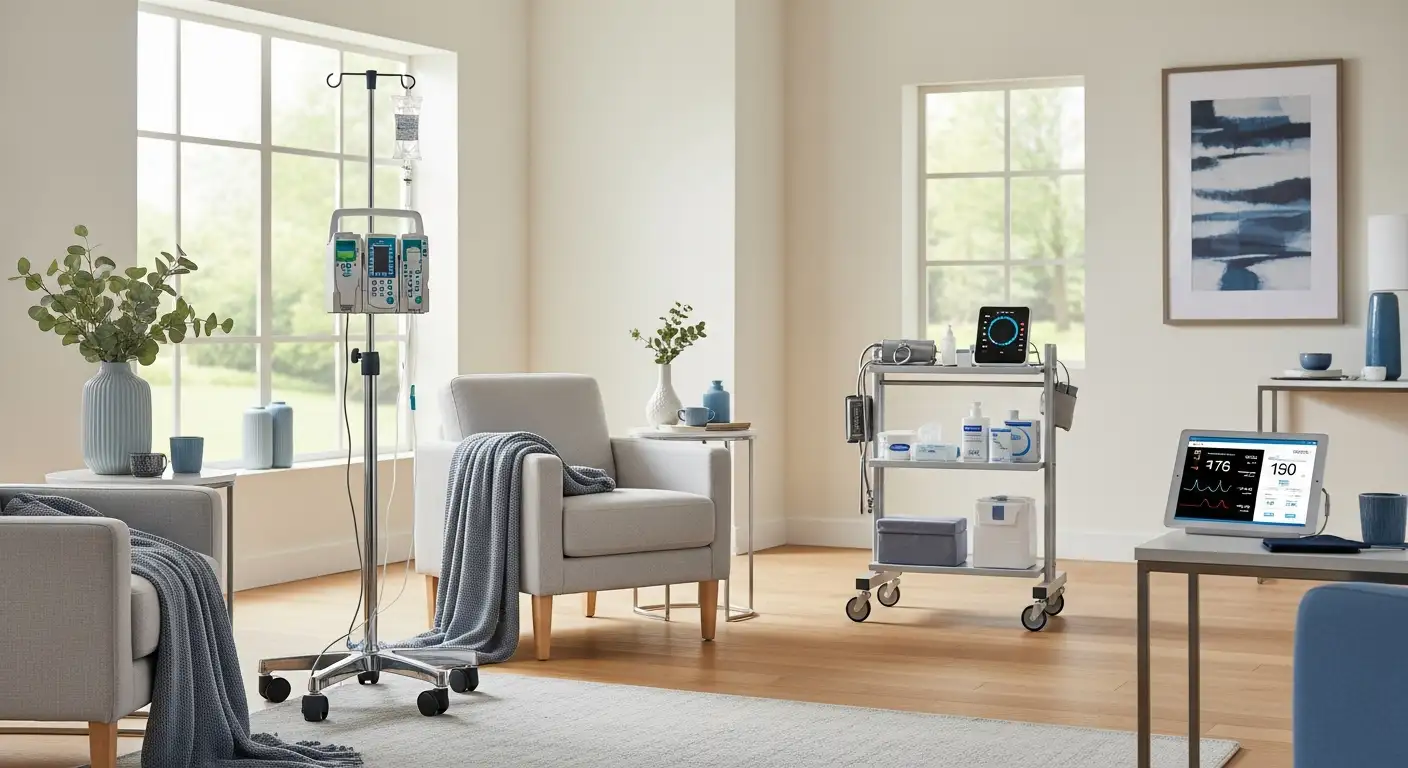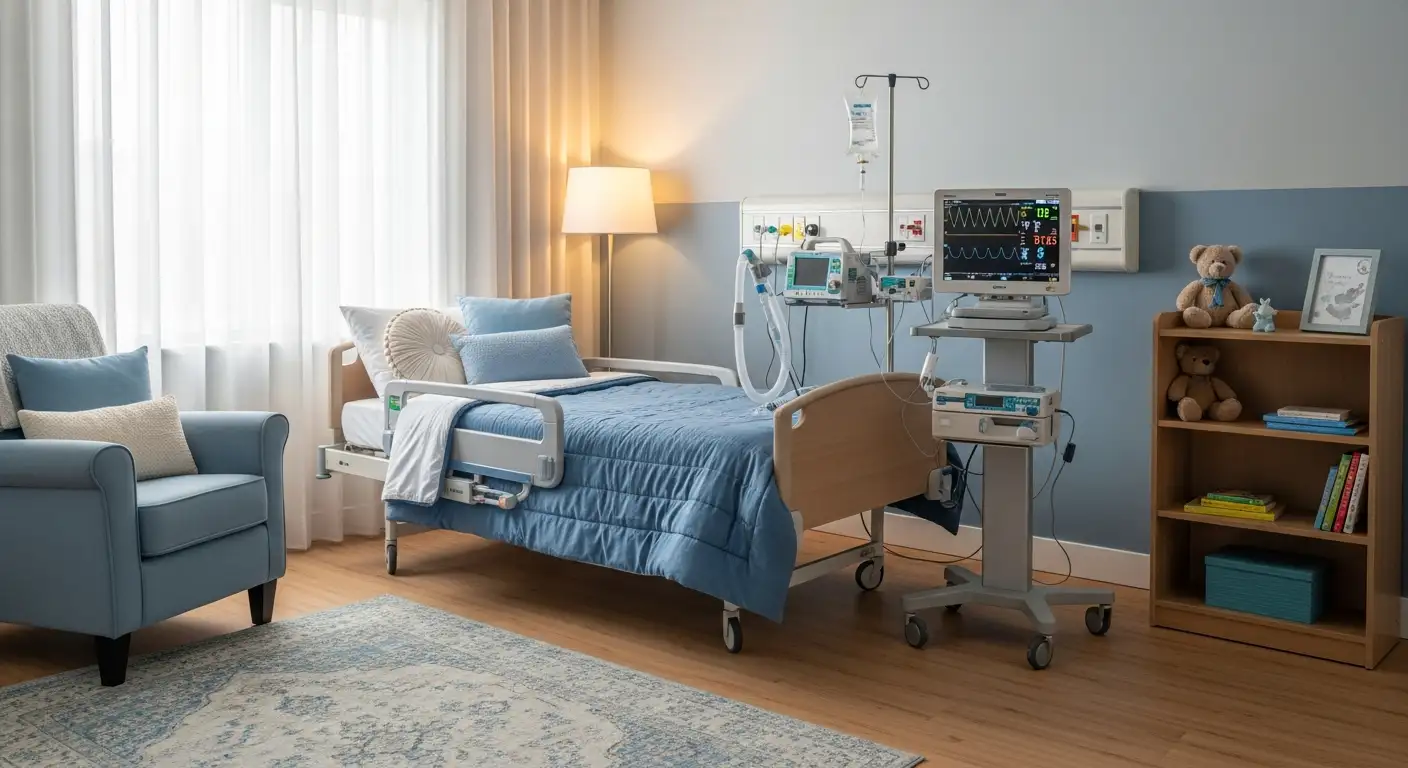Enhancing Family Life with In-Home Pediatric Medical Support
Pediatric home care has revolutionized how families manage chronic and complex health conditions in children. By shifting healthcare from hospital settings to familiar home environments, it fosters emotional stability, medical safety, and social participation. This article explores how pediatric home care markedly improves family quality of life, emotional well-being, and long-term health outcomes, emphasizing innovative approaches and comprehensive support mechanisms.
Benefits of Pediatrics Home Care in Family Life
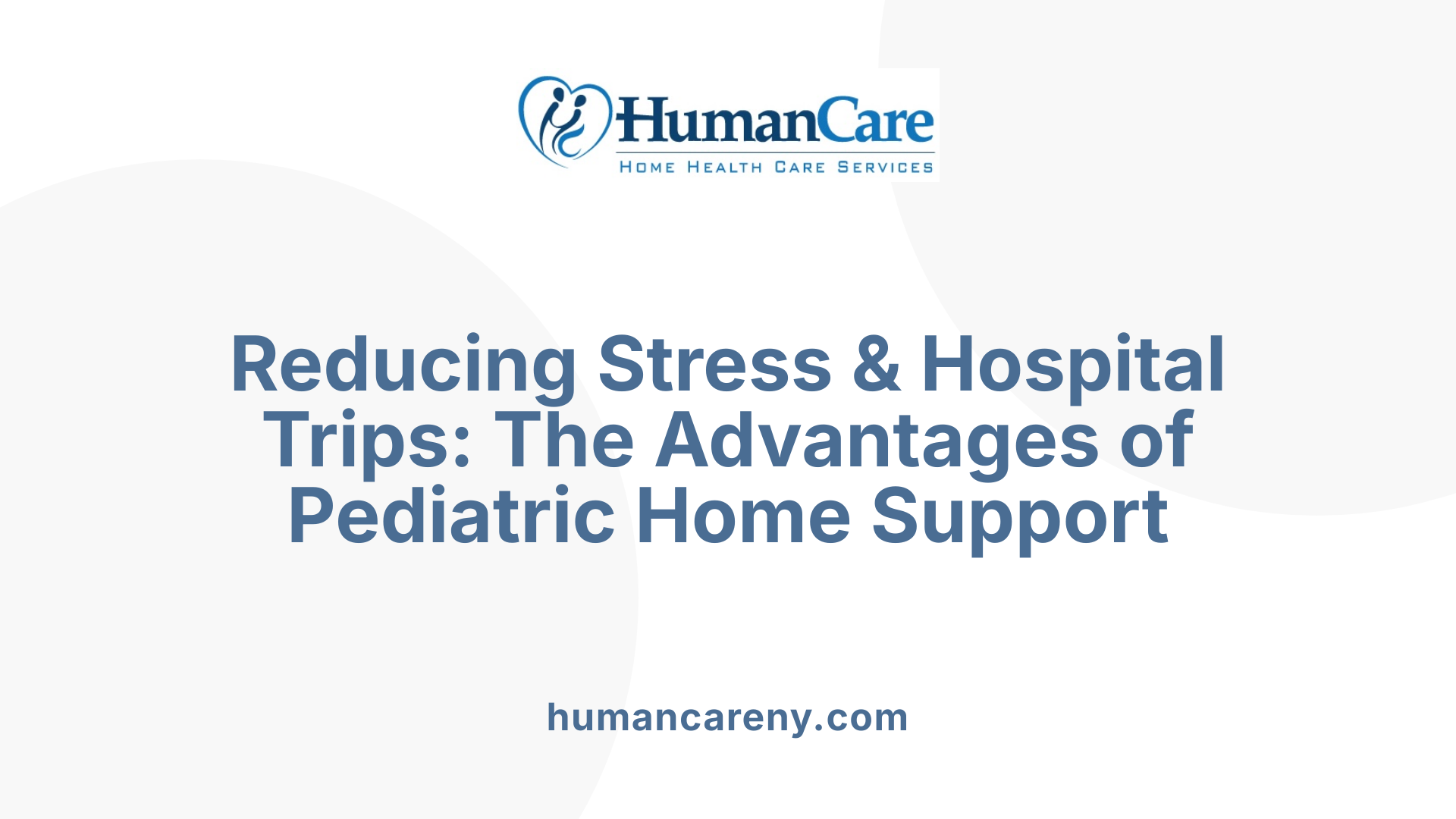
What are the benefits of pediatric home care for family quality of life?
Pediatric home care plays a crucial role in enhancing family life by offering tailored medical support right at home. This environment helps children recover faster, sleep more soundly, and feel secure, which directly alleviates emotional stress for families.
By reducing the frequency of hospital visits and hospitalization stays, home care minimizes logistical challenges and emotional strains that come with child medical needs. It allows families to focus on daily routines and maintain normalcy.
Home care services assist with essential activities such as bathing, grooming, and managing medications. They help children stay comfortable, retain independence, and participate in everyday activities, further supporting their well-being.
Flexible scheduling is a hallmark of home care, allowing treatment times to adapt to family routines, reducing disruptions and caregiver stress.
Moreover, professional caregivers develop trusting relationships with children and their families, fostering a supportive environment that recognizes the child's unique needs, ultimately promoting emotional stability and confidence among family members.
How does pediatric home care impact family well-being and emotional health?
Providing care in a familiar home setting offers immense emotional comfort, helping reduce anxiety and feelings of isolation for caregivers and families.
Consistent and personalized attention from skilled healthcare providers strengthens family bonds and builds trust, offering reassurance during challenging times.
Children tend to feel safer and more relaxed, which boosts their emotional resilience and overall happiness. The ability to involve family members actively in care enhances empowerment and sense of control.
Additionally, because children remain in a familiar environment, families experience less stress associated with hospital trips, such as transportation logistics and hospital-related fears.
This supportive model also fosters better communication between families and healthcare professionals, empowering caregivers with knowledge and confidence to manage health conditions effectively. Overall, pediatric home care nurtures emotional well-being, reduces family stress, and reinforces resilience within the family unit.
| Aspect | Benefits | Additional Details |
|---|---|---|
| Personalized support | Tailored medical plans | Adjusted to child's specific health needs |
| Reduced hospital visits | Less emotional and physical burden | Prevents hospital-related stress |
| Daily activity assistance | Maintains daily routines | Supports child's independence and comfort |
| Flexible scheduling | Fits family routines | Eases scheduling conflicts |
| Family bonds | Strengthened through active involvement | Fosters trust and emotional connections |
More info about hospital-based pediatric home care benefits and family-centered care can be found through specialized healthcare resources and current research on home health services.
Long-Term Advantages of Pediatric Home Healthcare
Pediatric home healthcare provides enduring benefits that significantly enhance the lives of children with chronic or complex conditions and their families. One of the primary advantages is the improvement in health outcomes and quality of life. Children receiving home-based care tend to recover faster, experience greater comfort, and participate more actively in daily routines, fostering developmental milestones and promoting psychological well-being.
Another critical benefit is the increased access to coordinated medical and social services. Efficient collaboration among healthcare providers, families, and community resources ensures consistent, comprehensive care that addresses both medical needs and emotional support. This integrated approach reduces disparities, especially in regions with limited healthcare infrastructure, and maintains continuity of care over time.
Studies show that sustained biomedical and psychosocial interventions in a home setting can lead to long-term mental health benefits for families. Families report feeling more empowered, less stressed, and better equipped to manage ongoing health challenges. Such programs also support social participation for children, allowing them to maintain friendships and participate in community activities.
Cost savings represent another profound benefit. Home healthcare reduces hospitalization rates and emergency visits, leading to lowered healthcare costs for families and health systems alike. By optimizing resource use and preventing avoidable hospital stays, pediatric home care contributes to a more sustainable healthcare system.
Lastly, the long-term stability provided by home-based services strengthens family resilience. By alleviating emotional and financial burdens, empowering parents through education, and fostering supportive networks, families can better cope with ongoing health issues. This holistic approach promotes emotional stability, reduces caregiver burnout, and enhances overall well-being.
| Benefit Area | Long-Term Impact | Additional Notes |
|---|---|---|
| Health Outcomes | Improved recovery, safety, and participation | Supports age-appropriate development and independence |
| Service Access | Better coordination and reduced disparities | Ensures care continuity across settings |
| Psychosocial Well-being | Enhanced mental health for families | Promotes resilience and emotional strength |
| Cost Management | Reduced hospitalizations and overall costs | Contributes to healthcare system sustainability |
| Family Strength | Increased stability and reduced burden | Fosters family bonding and long-term coping |
By focusing on these areas, pediatric home healthcare can substantially improve the long-term health and well-being of children, while supporting families through ongoing medical, emotional, and social needs.
Support and Services Provided by Pediatric Home Care
What support mechanisms and services are typically provided by pediatric home care?
Pediatric home care offers a wide array of services designed to meet the comprehensive needs of children with medical and developmental challenges. Skilled nursing care is central, providing clinical treatments such as medication administration, wound care, and management of medical devices. Additionally, therapeutic services like occupational and physical therapy help promote mobility, development, and emotional well-being.
Provision and management of medical equipment, including ventilators and feeding tubes, are also part of the support system, ensuring children receive the necessary tools for daily functioning. To empower families, caregiver training programs—including online courses, personalized coaching, and educational resources—are implemented to enhance confidence and competence in managing complex medical routines.
Transition support from hospital to home is coordinated through collaboration with healthcare teams, facilitating seamless care. These teams often include doctors, nurses, therapists, and social workers who work together to ensure each child’s needs are met effectively. Specialized programs, such as palliative, hospice, oncology, and neonatal services, are available to address specific conditions, fostering improved health outcomes and quality of life.
Overall, pediatric home care mechanisms are tailored to provide personalized, continuous, and family-centered support, allowing children to thrive in familiar environments with optimal medical oversight and emotional reassurance.
Improving Health Outcomes via Pediatric Home Care
How does pediatric home care improve health outcomes for children with medical needs?
Pediatric home care plays a vital role in enhancing health outcomes by offering consistent, customized, and family-oriented services. It allows children with chronic or complex medical conditions to receive ongoing care in a familiar and comfortable environment. This setting supports early detection of health issues, which enables swift intervention and prevents complications.
Children benefit from tailored treatment plans that include medication management, device use, and therapy, all coordinated by skilled healthcare professionals. Continuous monitoring and regular adjustments to treatment plans ensure that each child's evolving needs are met effectively.
By reducing hospital stays and emergency visits, home care minimizes risks such as infections and stress associated with hospital environments. Integrating these services within a medical home model improves care coordination, ensuring safety and comprehensive treatment. Digital tools such as telemedicine further support remote monitoring, increasing access to care and maintaining high safety standards.
Overall, high-quality pediatric home care not only promotes better immediate health outcomes but also supports long-term development, emotional well-being, and family stability. Addressing current workforce training gaps and embracing new technologies can optimize these benefits, making home care a cornerstone of effective pediatric health management.
Positive Impacts on Families with Medically Fragile Children
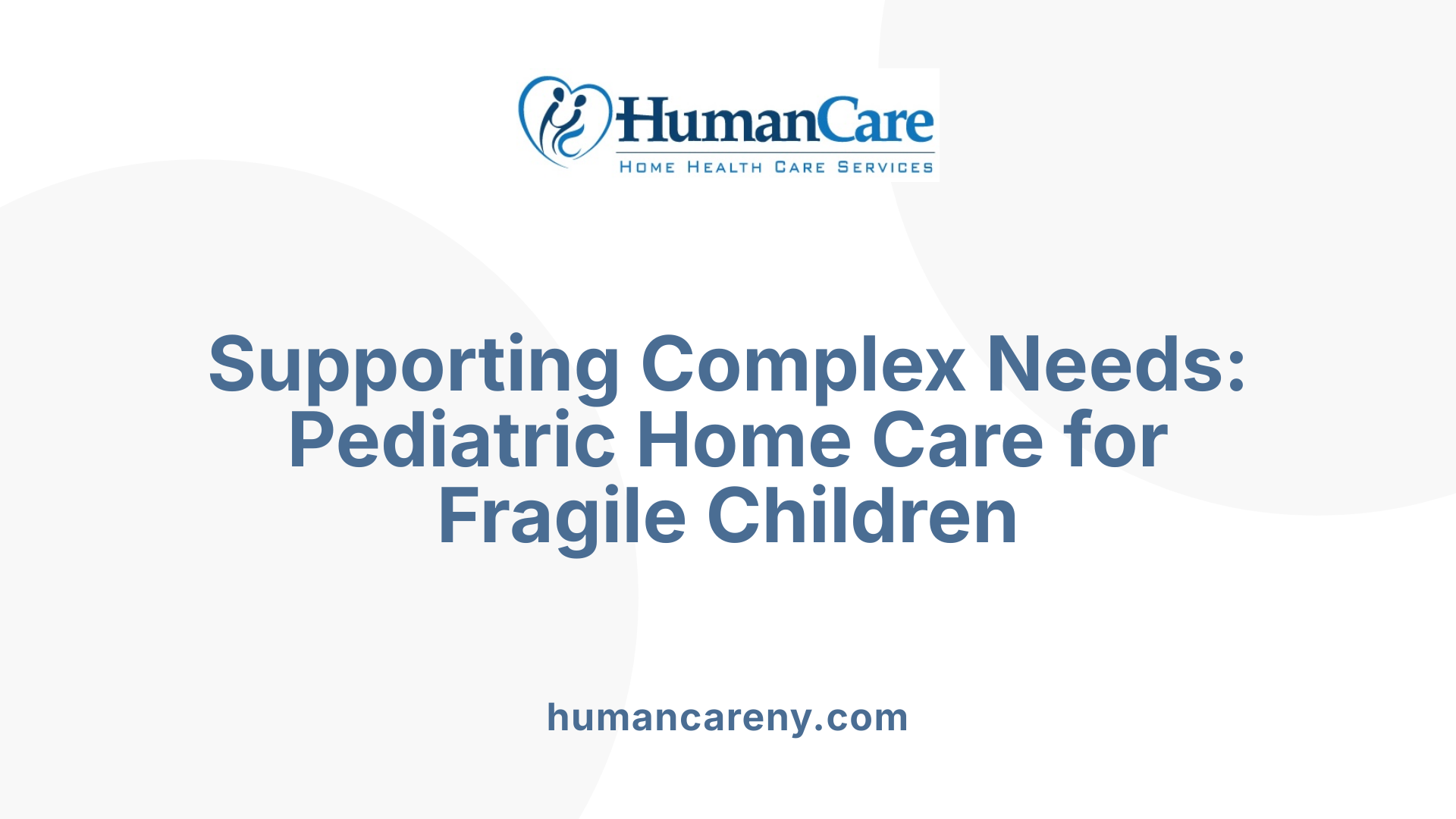 Pediatric home care significantly benefits families with children who have complex medical needs. One of its primary advantages is the reduction in hospitalizations and emergency visits. With professional healthcare providers managing ongoing treatments and monitoring symptoms at home, children experience fewer health crises that require hospital stays. This not only improves the child's health outcomes but also eases the burden on hospitals and healthcare resources.
Pediatric home care significantly benefits families with children who have complex medical needs. One of its primary advantages is the reduction in hospitalizations and emergency visits. With professional healthcare providers managing ongoing treatments and monitoring symptoms at home, children experience fewer health crises that require hospital stays. This not only improves the child's health outcomes but also eases the burden on hospitals and healthcare resources.
Additionally, home care offers substantial cost savings. By preventing unnecessary hospital admissions and reducing travel for medical appointments, families face lower medical bills and logistical expenses. This financial relief enhances overall family well-being and decreases the system's load.
Supporting the child's development and improving quality of life are also vital impacts of pediatric home care. Personalized care plans and continuous medical management promote better health, development, and emotional well-being. Children feel safe and relaxed in familiar surroundings, which helps them participate in daily activities and maintain social bonds.
Parental stress is greatly alleviated through professional support and structured routines. Care providers help families manage complex medical tasks in the comfort of their home, allowing parents to maintain employment and personal routines. This support fosters stability and normalcy, reducing the emotional and physical exhaustion often experienced by caregivers.
Finally, in-home care enhances emotional bonds and safety. Being cared for at home strengthens family relationships and provides children a sense of security. Skilled nurses ensure safety and effective medical management, offering parents peace of mind and confidence in their child's care.
| Impact Area | Benefits | Additional Details |
|---|---|---|
| Hospitalizations & Emergency Visits | Reduced hospital stays and ER visits | Ensures timely management of health issues in-home |
| Cost Savings | Lower medical and travel expenses | Supports family finances and system efficiency |
| Child Development & Well-being | Improved development and comfort | Fosters social interaction and emotional health |
| Parental Support & Routine | Less caregiver stress | Maintains family routines and employment |
| Emotional Bonds & Safety | Stronger family bonds, safer environment | Creates a stable, familiar setting |
Expanding access to pediatric home care is crucial for enhancing health outcomes and supporting families facing complex medical challenges. It provides a comprehensive, family-centered approach that promotes the child's safety, development, and emotional well-being.
Impact of Technology and Innovation in Pediatric Home Healthcare
Are there recent innovations or technological advancements in pediatric home healthcare?
Recent advances in pediatric home healthcare are transforming how care is delivered to children with complex medical conditions. Telemedicine has become a cornerstone, allowing healthcare providers to conduct virtual consultations, monitor symptoms remotely, and provide timely guidance without necessitating hospital visits. This approach not only enhances access but also fosters a more continuous connection between families and medical teams.
Remote patient monitoring devices, including wearable sensors and home-based vital sign trackers, enable real-time health data collection. These tools help detect early signs of deterioration, allowing swift interventions that can prevent hospitalization or emergency visits.
Moreover, mobile applications now offer families educational resources, medication reminders, and secure communication channels with healthcare providers. Such tools empower families with knowledge and confidence to manage daily care routines more effectively.
Emerging technologies like artificial intelligence (AI), virtual reality (VR), and advanced wearable devices further extend possibilities for personalized and proactive care. AI algorithms can analyze health trends, predict potential issues, and suggest tailored treatment adjustments.
Organizations such as the American Academy of Pediatrics and research initiatives like the Manne Research Institute’s Health@Home are actively supporting the development and rigorous evaluation of these innovations. Despite these positive strides, challenges remain, including workforce shortages and the need for comprehensive research to verify the long-term efficacy of these technological solutions.
As pediatric home healthcare continues to evolve with innovation, it promises improved safety, tailored treatments, and greater convenience for children and their families.
Strengthening Family Bonds and Reducing Stress with Home Care
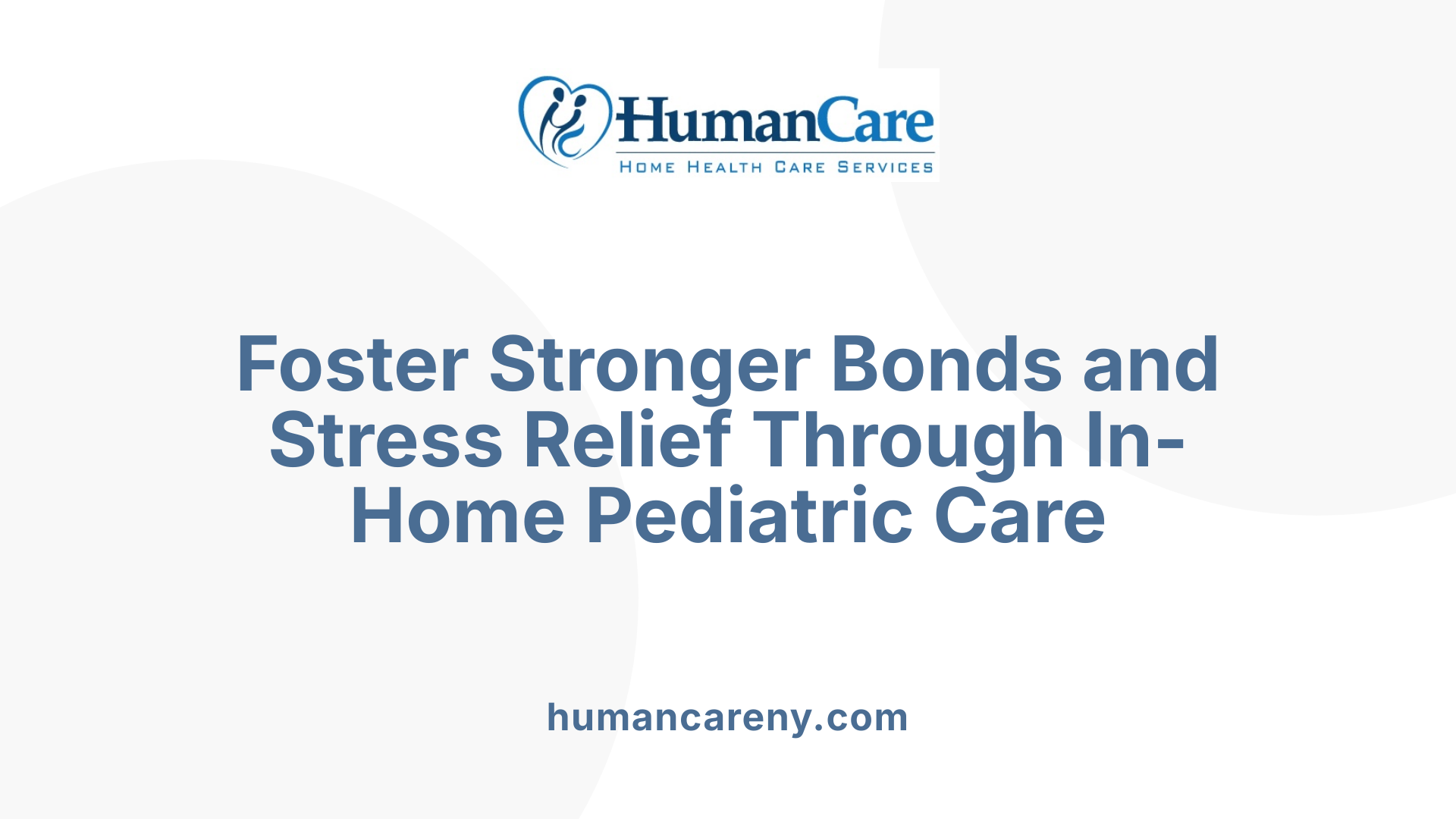
How does pediatric home care promote family involvement in care planning and activities?
Pediatric home care encourages families to actively participate in their child's treatment and daily routines. This involvement fosters a sense of partnership between caregivers and healthcare providers. Families can assist with therapy exercises, medication management, and monitor their child's progress, which strengthens emotional bonds.
In what ways does shared responsibility and emotional connection improve family dynamics?
By sharing responsibilities, parents and caregivers feel more empowered and connected to their child’s health journey. This shared responsibility enhances emotional connection, making families feel more confident in managing care while fostering trust and mutual support.
How does maintaining normalcy and routines at home benefit children and families?
Home care helps preserve daily routines, allowing children to engage in familiar activities and social interactions. Maintaining normalcy reduces anxiety and provides a stable environment, contributing positively to emotional well-being.
What is the impact of home care on parental stress and anxiety?
Receiving professional support in the home setting alleviates parental worries about managing complex medical needs. Regular visits and personalized care plans boost confidence, ease fears, and significantly reduce stress and anxiety for parents.
How does a supportive environment foster a caring atmosphere?
A nurturing home environment fostered through pediatric care promotes emotional well-being for children and families. The personalized attention, familiar surroundings, and collaborative care approach create a caring atmosphere that strengthens bonds and provides peace of mind.
| Aspect | Impact | Description |
|---|---|---|
| Family involvement | Strengthens bonds | Active participation in care routines |
| Shared responsibility | Builds trust | Collaborative management of health |
| Routine maintenance | Promotes normalcy | Ensures stability and familiarity |
| Stress reduction | Enhances well-being | Decreases parental anxiety |
| Supportive environment | Fosters resilience | Aids emotional and developmental growth |
This comprehensive approach nurtures stronger family ties and promotes a calmer, more balanced home atmosphere, essential for the child's overall development and family health.
Fostering a Future of Resilient, Healthy Families
The expansion and continual enhancement of pediatric home care services hold immense promise for elevating family quality of life. By integrating technological innovations, fostering family-centered approaches, and ensuring equitable access, pediatric home care can sustain long-term health benefits, emotional resilience, and stronger familial bonds. Supporting families with personalized, comprehensive care in a familiar environment not only meets immediate healthcare needs but also nurtures a supportive foundation upon which children and families can thrive. As healthcare systems evolve, fostering policies and practices that prioritize home-based pediatric care will be essential in building healthier, happier families committed to enduring well-being.
References
- Children's and parents' experiences of home care provided ...
- Pediatric Home Health Care — What You Need to Know
- Understanding the Long-Term Benefits of Pediatric Home ...
- Benefits of Pediatric Home Care for Medically Fragile ...
- The Role of Pediatric Home Care in Family Support
- Caregiver and Provider Experiences of Home Healthcare ...
- The experience of children and family in pediatric home ...
- Unlocking the Benefits of Pediatric Home Health Services

